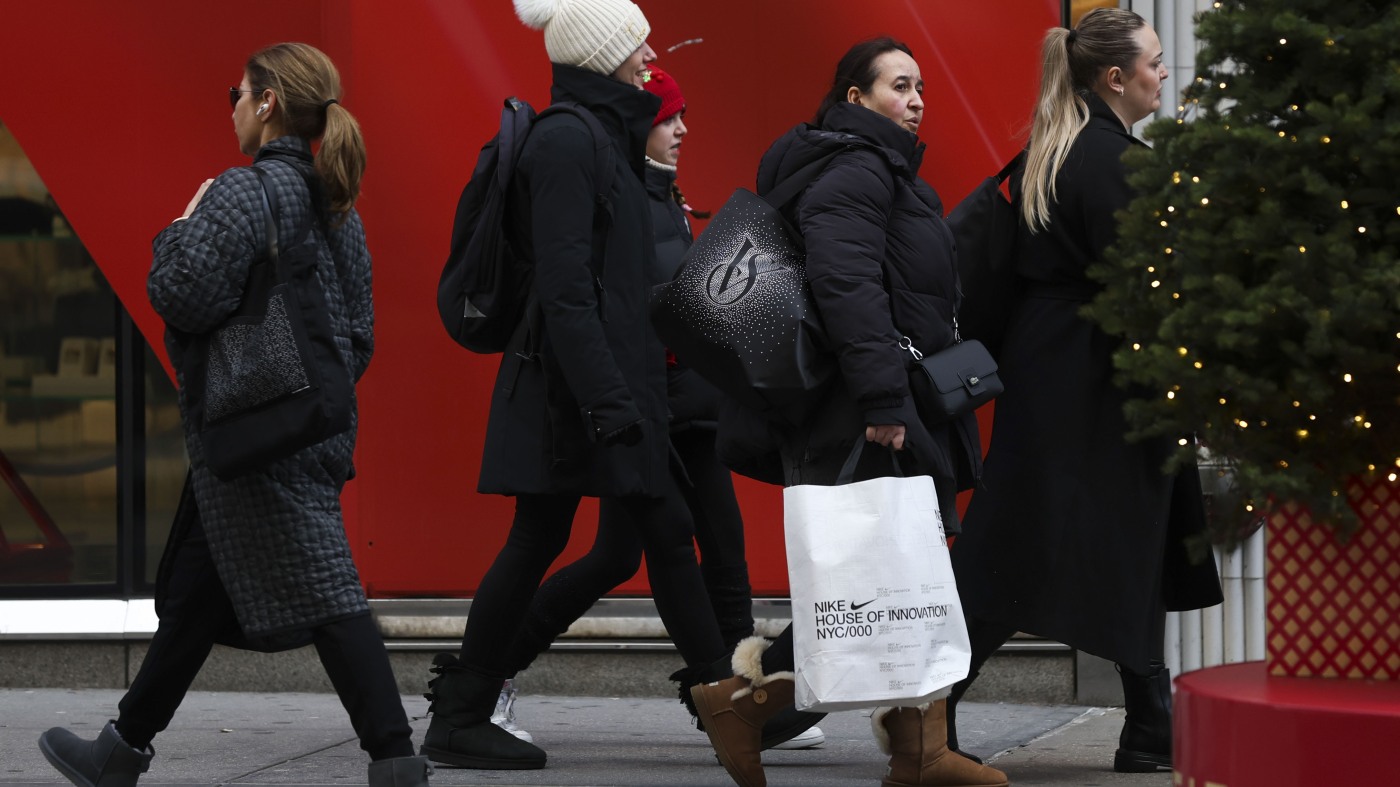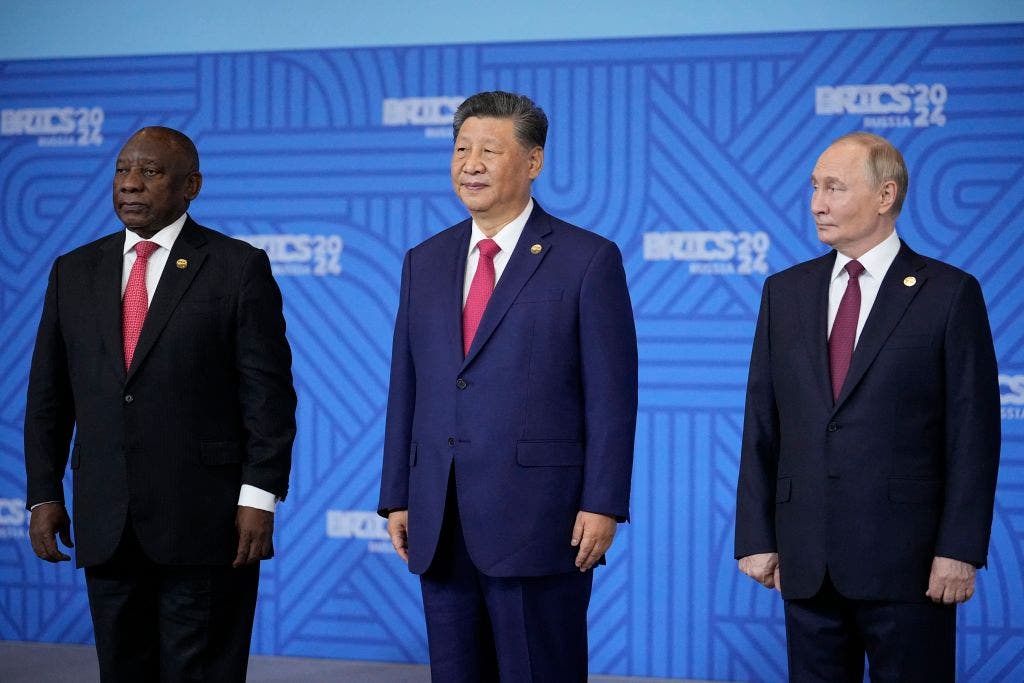Louisiana
Justice explains why he opposes Louisiana Supreme Court redistricting map – Louisiana Illuminator

Five of the Louisiana Supreme Court’s seven elected justices went public this week with their support of a proposal to redraw their districts. One of those who isn’t on board is now explaining why.
Associate Justices Willie Crain, James Genovese, Piper Griffin, Jefferson Hughes and Jay McCallum sent a letter Wednesday to the next governor, attorney general and legislative leaders endorsing their proposed map that creates a second majority-Black state Supreme Court district. The signatures of Chief Justice John Weimer and Associate Justice Scott Crichton were not on the letter.
In a separate letter sent Thursday to incoming state leaders, Crichton said he doesn’t oppose a second majority-minority district but objects to how it “obliterates” District 2, which he represents. The district’s current boundaries span northern Louisiana from its western to eastern borders. The proposed revisions would move District 2 toward the northeastern corner of the state and then have it reach southward along the Mississippi River.
Crichton will turn 70 years old, the mandated retirement age for Louisiana judges, in June and cannot run for reelection after his term ends Dec. 31, 2024. He said in his letter, a copy of which the Illuminator obtained Friday, that some 500,000 voters in his district will be disenfranchised for two years. Under boundaries the five justices propose, they will be moved into two new districts and have no representation on the court from Jan. 1, 2025, until elections are held in the two other districts for justices whose terms expire Dec. 31, 2026.
Rather than use the map the five justices endorsed, Crichton wants the Louisiana Legislature to rework the boundaries to add a second majority-minority district. Griffin, who represents New Orleans-concentrated District 4, is the state Supreme Court’s only non-white justice.
“Importantly, I agree with my colleagues that malapportionment issues related to the Supreme Court must be resolved to create a second majority-minority district, for the reasons noted in their letter,” Crichton wrote. “I also prefer that our duly-elected representatives in the legislature adopt a plan to achieve that objective, rather than the federal courts doing so for us.”
Weimer could not be reached Friday afternoon to ask why he did not sign the letter the five justices sent Wednesday.
Louisiana Supreme Court justices want their districts redrawn
State lawmakers already plan to convene for a special redistricting session Jan. 15-23 after a federal judge set a Jan. 31 deadline for them to create a second majority-Black congressional district in Louisiana. The Republican-majority legislature has twice previously refused to add the second Black district, leading to a lawsuit over federal Voting Rights Act violations.
During the 2022 redistricting session, state lawmakers were presented with four different versions of new Louisiana Supreme Court districts. Three of them, all House bills, added a second majority-Black district and advanced from a redistricting committee, but none were brought up for a House floor vote.
Census numbers show Louisiana’s population of 4.67 million nearing one-third Black, which Democrats and voting rights advocates argue should be reflected through redistricting. Instead, the legislature maintained the status quo last year. In addition to staying with the current U.S. House makeup, lawmakers kept six of the eight elected positions on the Board of Elementary and Secondary Education as majority Black. They also left the racial composition of their own legislative districts unchanged.
Louisiana law doesn’t require state lawmakers to redraw boundaries for the Supreme Court districts, unlike the legally mandated decennial updates to boundaries for its U.S. House, legislative and state school board seats. But justices anticipate federal courts stepping if no changes are made.
In addition to the lawsuit challenging Louisiana’s congressional districts, Black voters have also sued to force changes to the racial makeup of state House and Senate seats. The U.S. Department of Justice has intervened for the plaintiffs in the latter case.

Louisiana
Heart of Louisiana: Savoy Music

NEW ORLEANS (WVUE) – You can feel the strong Cajun tradition the moment you step inside the Savoy Music Center near the southwest Louisiana city of Eunice.
The blend of strong black coffee, the savory aroma of boudin sausage, lively conversations, and the music create an atmosphere that is unmistakably Cajun.
For more, visit the Heart of Louisiana archive here.
See a spelling or grammar error in our story? Click Here to report it. Please include the headline.
Subscribe to the Fox 8 YouTube channel.
Copyright 2024 WVUE. All rights reserved.
Louisiana
Army Black Knights, Louisiana Tech Offensive Stars To Watch in Independence Bowl

The Independence Bowl will be a game of offensive contrasts as the Army West Point Black Knights face the Louisiana Tech Bulldogs on Saturday at Independence Stadium.
Kickoff is set for 9:15 p.m. eastern on ESPN.
Army (11-2) enters the game using its run-based attack based on option, deception and power football. If the Black Knights don’t have 34 or 35 minutes of time of possession by game’s end, then they haven’t done their job. Army can create big plays, but the Black Knights would rather grind its opponents down to submission.
Louisiana Tech (5-7) runs a pass-based, Air Raid offense that coach Sonny Cumbie learned from one of his coaches and mentors, the legendary Mike Leach. The former Texas Tech quarterback doesn’t have the talent he needs to make it as effective as the Red Raiders’ glory days offensively. But, he’s found a quarterback that could help get him there in the coming years — if the Bulldogs can hang onto him.
This is the transfer portal era after all.
Here are three offensive players to watch for each team going into Saturday’s contest.
QB Bryson Daily
Daily was the American Athletic Conference offensive player of the year and was sixth in Heisman Trophy voting. He is the focal point of this offense. He’s rushed for 1,532 yards and 29 touchdowns (tied for most in FBS) and has thrown for another 942 yards with nine touchdowns and four interceptions. If LA Tech wants to win, it has to slow him down. Look at the Navy tape for a template.
RB Noah Short
With Kanye Udoh’s transfer to Arizona State, the bulk of the complementary backfield work may fall to short, who was the Black Knights’ third-leading rusher this season. He rushed for 542 yards and two touchdowns but gained more yards per carry (7.7) than Udoh (6.2).
This is Daily’s swan song so he’ll get plenty of work. But Short needs to be a solid complement. He’s also one of Army’s top passing targets with 17 catches for 318 yards and three touchdowns.
WR Casey Reynolds
Reynolds leads the Black Knights with 19 receptions for 444 yards and three touchdowns. When Daily looks for a big play down the field, count on Reynolds to be the receiver he’s looking for. It’s been that way all season.
QB Evan Bullock
He finally emerged with the starting job in late September and the freshman ended up with 1,938 yards, 14 touchdowns and two interceptions as he completed 67% of his passes. That’s a solid start in an offense that requires quick passing and high accuracy. Bullock has both, but he’s also been sacked 31 times.
RB Omiri Wiggins
The running game can be afterthought in an Air Raid offense. But Wiggins is coming off a huge game in LA Tech’s finale, as he rushed for 129 yards and three touchdowns and three interceptions against Kennesaw State. That was more than a quarter of his output this season (487 yards, four touchdowns).
WR Tru Edwards
The senior is from Shreveport, La., so this is like coming home. And he’s had a huge year for the Bulldogs. Edwards is their leading receiver by a significant margin, with 77 receptions for 897 yards and six touchdowns. He’s caught 25 passes in his last three games but hasn’t found the end zone.
Louisiana
Letters: State should invest in training mental health providers

Most of Louisiana is classified as a mental health professional shortage area, leaving countless families — especially children —without access to critical mental health services. According to the National Survey of Children’s Health, over half of children in Louisiana who experience mental health challenges do not receive the care they need. This is a staggering number given that this study estimates that 30.3% of children ages 3-17 have at least one emotional, developmental or behavioral health disorder. This unmet need has far-reaching consequences, affecting school performance, family stability and community safety.
Addressing this gap starts with investing in higher education programs that train the mental health professionals our state desperately needs. Universities such as the University of Louisiana Monroe, Louisiana State University Shreveport, Louisiana Tech University, Grambling State University, the University of Louisiana at Lafayette, McNeese State University, Northwestern State University, Southeastern Louisiana University, University of New Orleans, University of Holy Cross, Tulane University, Nicholls State University, LSU and others play a vital role in preparing skilled counselors, psychologists and social workers.
However, the current capacity of mental health training programs is not sufficient to meet the growing demand. We are facing another potential budget shortfall in Louisiana that could impact higher education. Without adequate funding and resources, these programs may struggle to equip students with the expertise and experience required to enter the workforce.
Investing in these programs is not just about addressing today’s challenges — it is about safeguarding the future of Louisiana. By increasing the number of trained mental health professionals, we can improve outcomes for children and families, reduce the strain on emergency services and foster healthier, more resilient communities.
It is time to prioritize the mental health of our state by supporting higher education programs that make a difference. Together, we can build a brighter, healthier future.
MATTHEW THORNTON
chief executive officer, Center for Children and Families, Inc.
-
/cdn.vox-cdn.com/uploads/chorus_asset/file/24924653/236780_Google_AntiTrust_Trial_Custom_Art_CVirginia__0003_1.png)
/cdn.vox-cdn.com/uploads/chorus_asset/file/24924653/236780_Google_AntiTrust_Trial_Custom_Art_CVirginia__0003_1.png) Technology5 days ago
Technology5 days agoGoogle’s counteroffer to the government trying to break it up is unbundling Android apps
-

 News6 days ago
News6 days agoNovo Nordisk shares tumble as weight-loss drug trial data disappoints
-

 Politics6 days ago
Politics6 days agoIllegal immigrant sexually abused child in the U.S. after being removed from the country five times
-

 Entertainment7 days ago
Entertainment7 days ago'It's a little holiday gift': Inside the Weeknd's free Santa Monica show for his biggest fans
-

 Lifestyle6 days ago
Lifestyle6 days agoThink you can't dance? Get up and try these tips in our comic. We dare you!
-

 Technology1 week ago
Technology1 week agoFox News AI Newsletter: OpenAI responds to Elon Musk's lawsuit
-
/cdn.vox-cdn.com/uploads/chorus_asset/file/25672934/Metaphor_Key_Art_Horizontal.png)
/cdn.vox-cdn.com/uploads/chorus_asset/file/25672934/Metaphor_Key_Art_Horizontal.png) Technology2 days ago
Technology2 days agoThere’s a reason Metaphor: ReFantanzio’s battle music sounds as cool as it does
-

 News3 days ago
News3 days agoFrance’s new premier selects Eric Lombard as finance minister






/cdn.vox-cdn.com/uploads/chorus_asset/file/25742882/DSC_1384_Enhanced_NR.jpg)











